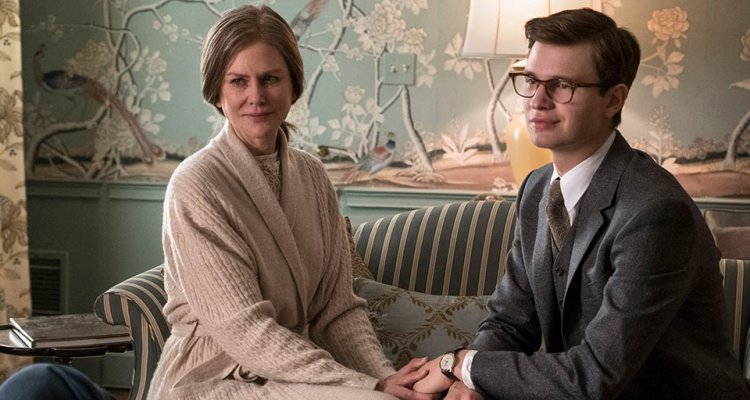At the risk of putting too fine a point on it, Ansel Elgort cannot really act. In most of his work, that doesn’t matter much; he’s a perfectly adequate Unthreateningly Handsome Teen in something like “Divergent” or “The Fault in Our Stars,” and in “Baby Driver,” he’s basically a puppet in the hands of a stylish director who’s figured out how to manipulate him into something resembling a human being. Alas, that won’t do in “The Goldfinch,” the new adaption of Donna Tartt’s novel from director John Crowley (“Brooklyn”). Elgort is insufferably miscast as the story’s protagonist, Theodore Decker; we’re told he’s a dashing, knowledgeable antique furniture salesman with a dark past and secrets a-plenty, but he looks like a kid in a high school play who borrowed his dad’s glasses and suit in a failed attempt to look like a grown-up.
READ MORE: 2019 Toronto International Film Festival: 25 Most Anticipated Movies
The film opens with his suicide attempt and the accordant ruminations over his failures and regrets (conveyed in letters to those he loves). “It was my fault. Just like everything that’s happened to me,” he writes. These are powerful words, though Elgort recites them like he’s reading a grocery list. I know, I know, the worst actors over-emote and gnash their teeth—and don’t worry, he does plenty of that too—but for this noble, enigmatic underplaying to work, there has to be some indication of an inner life. None of that is happening in this performance. It’s a flat, dull nothing.
READ MORE: 2019 Fall Preview: The 45 Most Anticipated Films
The good news is that the actor who plays the younger Theo, “Wonderstruck” co-star Oakes Fegley, is quite good, and he thankfully has far more screen time. We first meet him when he’s handed over to Mrs. Barbour (Nicole Kidman), the confused mother of a school friend. It turns out Theo’s father has vanished, and his mother is dead, killed in a bombing at the Metropolitan Museum of Art that Theo barely survived himself. He’s haunted by grief, trauma, and rage from the event; the Barbours takes him in, for a time, until his father reappears.
READ MORE: The Best Films Of 2019… So Far
The father is played by Luke Wilson, rocking a hoodie under a sport coat, a costuming choice that tells you everything you need to know about him before he’s said a word. Dad and his new wife (Sarah Paulson) drag poor little Theo off to Arizona, where they live in a dumpy development surrounded by foreclosures and homes for sale – and Boris (Finn Wolfhard), and eccentric Ukranian kid, who also lives with his father. Their middle section is easily the best of the film; I would watch a whole movie about this friendship, between a naïve innocent and the friend who is both a damaged, lousy influence and precisely the kind of judgment-free companion he needs. They smoke cigarettes and drink beers, though they’re way too young to do either, until life throws Theo another curve, and…
READ MORE: The 100 Most Anticipated Films Of 2019
Look, I could go another five hundred words on the plot—I haven’t even mentioned the whole thread involving the titular painting—and that’s part of the problem. No doubt due to the perils of adaptation, the narrative is too busy by half. By the time Crowley’s staging a shootout with the German thugs, I honestly could barely remember what the movie was even supposed to be about.
There are elements of “The Goldfinch” that work, hints of the better film it could have been. Cinematographer Roger Deakins couldn’t shoot an ugly frame if his life depended on it, and he beautifully manifests Theo’s shift in scenery via visual textures and moods. And the supporting performers impress. Crowley manages to capture Jeffrey Wright’s warmth and curiosity, Kidman’s intensity and melancholy, and Wilson’s unexpected darkness onscreen. Paulson makes the most of her sadly limited screen time, and while Denis O’Hare is only in two scenes, it’s almost worth sitting through the whole film to hear the way he purrs, “I know all about youuuuuu.”
But it’s just too damn pokey at 149 minutes, each of them reminding us that this is a stately Literary Adaptation in a way that Crowley’s “Brooklyn” mostly decidedly was not. Perhaps the pieces could have held together with the right leading man as glue. Elgort is, assuredly, not that. [C-]
Click here for our complete coverage from this year’s Toronto International Film Festival.

